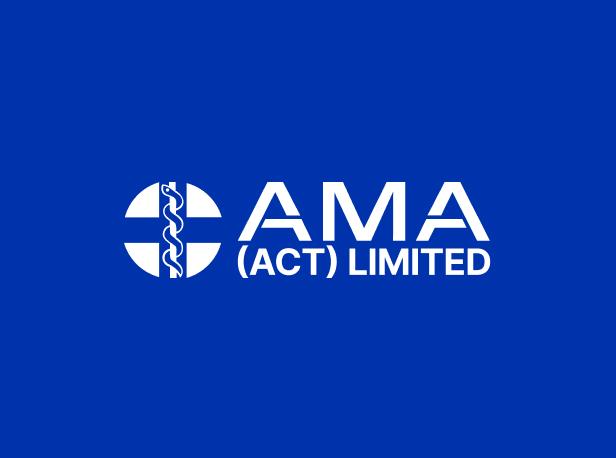Q&A with Dr Kieran Barr (Canberra Doctor - August 2017)
Dr Kieran Barr is a RMO currently working in MAPU at Calvary Hospital. He is a graduate of ANU (Medicine & Surgery - 2015) and University of Melbourne (Biomedicine – 2010). Dr Barr once had the privilege of holding Roger Federer’s sweaty towel when he worked as a ballkid at the Australian Open. He is also a former tractor driver, telemarketer, waiter and wardsman.

Why did you pursue a career in medicine? Is there a speciality you are interested in doing?
Medicine was always a goal because it was something difficult to get into. My parents were really supportive to challenge me to do well academically, as only ~10-15% of students in my year at high school went to university. I think I really only decided on medicine when I visited the Royal Flying Doctors’ Service museum in Alice Springs in Year 11 Camp. Something about it made me think ‘I’m going to do that someday’.
I haven’t really found a specialty of medicine I don’t like. I’m wanting to explore Emergency Medicine at this stage, as the acute generalist concept is most appealing.
If you weren’t a Doctor, what would you be?
I thought I was on my way to being a ‘professional’ drummer in a progressive rock/nu-metal band. The evidence can be found at the ‘myspace’ website (does it even still exist?) by searching for a band called ‘Achromic’. Failing that, I wanted to be a sound engineer. I even had a ‘business’ called ‘Shed O Sweat’ with my cousin – recording music in a tin shed in the summer holidays! Failing that, I would have liked to be a mechanical engineer working for a car manufacturer.
In your opinion, what is the most pressing issue facing Junior Doctors?
The training ‘bottleneck’ is our biggest issue, in my opinion. We have a discrepancy between training positions and the increase in medical school student places. This isn’t helped by the announcement of the Macquarie Medical School, for example. We already have a shortfall of intern places Australia-wide. I acknowledge that there are drastic shortages of multiple specialties in many rural and remote areas, however. We need to do more on the distribution of doctors according to the health needs of all Australians. It will be interesting to see if the bonded scheme (of which I’m a part) will make any appreciable difference to healthcare service supply in areas of real demand.
My concern is that the current rate of supply, with no change in training position numbers, will mean that junior doctors have to do more to improve their resumes to get a chance for interviews – full-time work, additional university degrees/PhDs, and college requirements. To do more, there is a price to pay - a growing concern for the mental health of training doctors. Furthermore, 20 years down the track we may be looking at thousands of people with medical degrees (even specialists) unable to find secure employment.
Name an experience, event or person that has had a lasting influence on your medical career
I recall a ‘Round Table Dinner’ I attended whilst living on residence at St Hilda’s College at the University of Melbourne. Professor Hugh Taylor AC was the speaker. He is an Ophthalmologist and the Head of the Indigenous Eye Unit at the University of Melbourne. He spoke about being involved in the College of Ophthalmologists’ National Trachoma and Eye Health Program fieldwork in the 1970’s – made famous by Fred Hollows. It struck a chord, as I already had an interest in Indigenous health, and actually enabled me to do research about trachoma surgical techniques in Alice Springs during medical school. It was also part of the reason for being involved in the Indigenous Health Stream that ANU Medical School offers.
How did your experience as a hospital wardsman prepare you for work as a hospital Doctor?
It was a great part-time job, and got me fantastic exposure to the logistics of a hospital. It made me appreciate that there are so many cogs in the hospital machine that are all essential – theatre preparation, cleaning, waste disposal, restocking, repair of broken items, staff management, and patient flow. I developed an appreciation of the patient journey though the hospital, and enjoyed chaperoning them through a small part of their experience (even though they wouldn’t have remembered).
What would you say is the most rewarding part of being a hospital doctor?
Being ultimately responsible for each patients’ care, being their advocate, having a say in how they are treated, and being involved in their journey, I would say. Bearing witness to patients recovering and/or deteriorating is such a special, privileged experience that I hope I’ll never take for granted.
Also, medicine is just so fascinating, it never ceases to amaze me, though the ever-expanding horizon of knowledge is quite daunting!
What would your wife say is your most annoying habit and have you made an attempt to change your ways?
She is happy that I vacuum and clean the shower, but I get ‘the stare’ when biting my fingernails! Perhaps when there are no more exams to complete or courses to do, then I’ll stop?